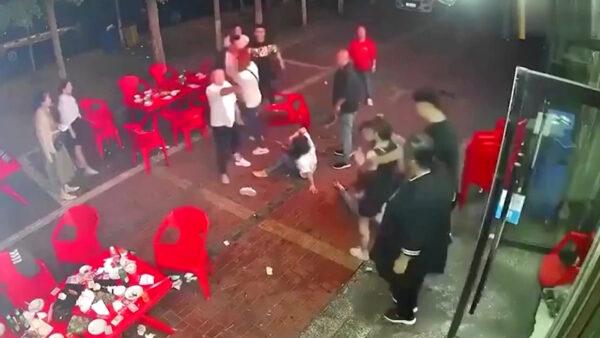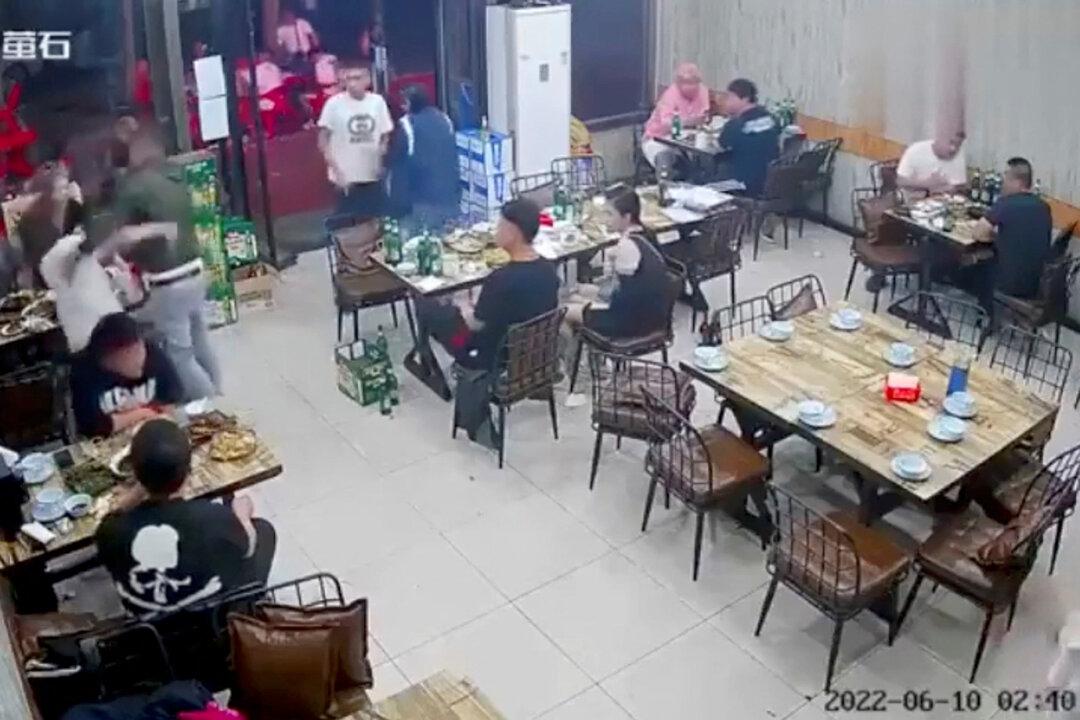After a video of four women being brutally attacked in a restaurant in Tangshan, China last week went viral and sparked public outrage online, the Chinese Communist Party’s (CCP) Cyberspace Administration issued a new regulations to increase control of comments about videos on social media threads. This measure has attracted wide criticism.
Under public pressure, the regime arrested nine men involved in the attack, and the authorities announced that two of the women were in ICU while the other two, who suffered lesser injuries, had been discharged from hospital.
However, due to the level of brutality and violence that the women suffered in the graphic video and many questions about the incident remaining unanswered, the public has continued to use social media to express doubts about the official statements.
In order to quell the public outrage, Tangshan authorities launched an anti-gang campaign on June 12. However, since then at least three public security chiefs have been reported for collusion with the local gangs by citizens who used their real names.

Besides deleting a large number of posts about the incident every day, on June 17, the Cyberspace Administration of the regime issued the “Management of Internet Thread Commenting Services (Revised Draft),” which requires online commenting and posting service providers to authenticate the identity of registered users, and not allow users who have not authenticated their identities to comment under a post. It will also “establish a user classification management system”, and conduct “credit assessment” on users’ online comments. Those who are classified as “seriously dishonest” will be blacklisted and prohibited from re-registering accounts to post comments.
The regulation also requires service providers to set up real-time inspections, and implement “inspection before posting” to control the content of online comments and posts.
News of this change has drawn wide criticism. One netizen posted: “I’m against the ‘inspection before posting,’ [because] the impact of online discussions will be greatly reduced.”
Another post read, “They are using the real-name requirement to control netizens across the country. Nobody will dare to mention things like the Tangshan incident in the future!”
A netizen said in a post, “Not only are the media the Party’s mouthpiece, in the future, the internet and social media will become its mouthpiece as well!”
Another one said, “In the future, China’s online environment will be the same as that of North Korea!”
Wang pointed out that under the CCP’s control using violence and lies, ordinary people have no place to voice their grievances. “The CCP ignores the truth, instead, it goes all out to suppress the people and to silence them. The final result of this can only be for the common people to stand up and collapse the CCP’s rule,” he said.




